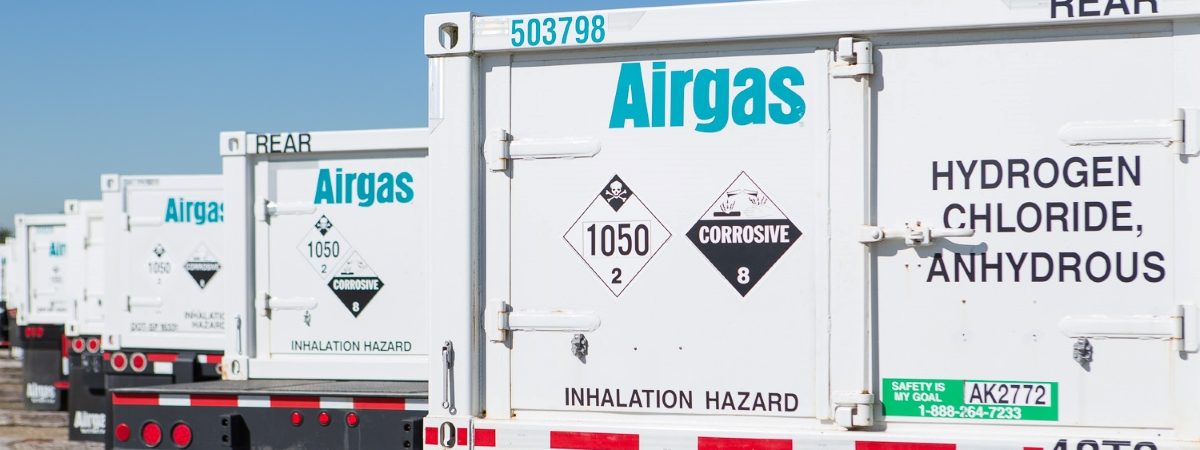A Chemical Chameleon: The Industrial Uses for Ammonia
Product guide
Ammonia is produced throughout the world on an impressively large scale. By volume, it’s one of the most produced chemical compounds in the world- second only to sulfuric acid. In order to keep up with demand, 146 million metric tons of ammonia are produced annually. The US alone produces 9 million metric tons each year.
But why is industrial ammonia so needed? What are the possible applications for this product that require it to be produced at this level?
In truth, ammonia is used in a wide array of industries from personal household products to crude oil to wastewater remediation. So what are the varying uses of ammonia? Let’s take a look.
Ammonia’s Use In the Manufacturing Industry
Ammonia is used in the manufacturing of many household and industrial items. Its use in creating these products is widespread. Ammonia can be found in the creation of many products, including:
- Plastics
- Explosives
- Textiles
- Dyes
- Many kinds of chemicals
- Artificial fibers like nylon and acrylics
There is even growing use of ammonia in the pharmaceutical industry, functioning as an active pharmaceutical ingredient (API) to serve as a catalyst for some chemical reactions to occur.
Of course, ammonia is also found in many cleaning products. Ammonia gas is added to water, in concentrations somewhere between 5 and 10% for household cleaners, and around 25% for some industrial cleaning products.
Ammonia in the Agricultural Industry
Industrial ammonia is widely used by farmers as a fertilizer. In fact, 90% of ammonia is produced just for fertilizers. How is this possible? Nitrogen is an essential nutrient for plant growth. Anhydrous ammonia, compressed into a liquid state, is three parts hydrogen to one part nitrogen– making it rich in the element. While nitrogen is abundantly available in the earth’s atmosphere, it isn’t available in a form that can be processed and absorbed by plants.
Many plants rely on nitrogen produced by decomposing organic matter for fertilizer and survival, but in a field where plants are harvested year after year, farmers may need to boost the nitrogen levels in their soil. They inject anhydrous ammonia into the soil to fertilize their crops.
As soon as the ammonia is injected into the soil, it becomes a gas, and the nitrogen is released into the moisture within the soil, where the crops can absorb it. This boosts plant growth and prevents leaves from looking yellow.
Ammonia is also used in grain storage, as an animal feed antiseptic, and as an antimicrobial for textured beef. In addition, it is sometimes used in the following ways:
- A pre-harvest cotton defoliant
- And antifungal agent for some fruits
- A preservative for high-moisture corn harvests
Water and Wastewater Treatment & Ammonia
Like in the agricultural industry, ammonia is used for its nitrogen content when treating wastewater. In biological wastewater remediation, the nitrogen is utilized by bacteria that make proteins, including enzymes that break down the waste in the water.
Ammonia has also been used for over 70 years in water treatment facilities to extend the life of disinfection chlorine that is added to drinking water. It also reduces the formation of by-products that are sometimes created by chlorine, which are sometimes carcinogenic.
Ammonia As an Industrial Refrigerant
While ammonia is a bit too volatile to be used in its pure form in home refrigerators, it is used as an industrial refrigerant. It is widely used in the food industry to keep things cool because of its low boiling point (-28℉) which absorbs heat, as well as its low cost and energy-saving capabilities:
- In warehouses
- In food processing facilities
- In large scale industrial refrigeration systems
Industrial ammonia is even used to keep ice rinks frozen, and serves as a heavy-duty refrigerant in underground mining too.
Additional Uses for Ammonia
The industrial uses for ammonia are seemingly endless. Not only is it used in manufacturing, in agriculture, in water, and as a refrigerant, but it is also used in the following ways:
- To case-harden metal in a process known as ammonia nitriding for gears, crankshafts, valves, die-casting tools, and more. It is used in many kinds of metal treating processes.
- To extract metals like copper and nickel from their ores in the mining industry
- In the rubber industry to stabilize natural and synthetic latex so it doesn’t coagulate too quickly
- In pulp and paper mills, ammonia is used to treat wastewater, which has a high concentration of soluble organic matter. Ammonia treats this waste found in the water on site.
- Ammonia is used to remove harmful emissions and pollutants from the air. Aqueous ammonia removes these after-treatment sulfuric emissions in a process called deNOx.
- Ammonia is also used to treat crude oil because of its alkaline properties. It balances the acidic properties of crude oil, and prevents corrosion of equipment.
Airgas Specialty Products is a leader at the forefront of providing industrial ammonia and ammonia-related services. We know that ammonia can be used in all sorts of ways in many different industries, and we are here to help with all of them, whether you need a steady supply of ammonia, engineering services, field service, maintenance, or pump-outs.
We consult with companies across the US to problem-solve, and to aid in the tricky process of handling industrial ammonia in the safest way possible. We know that in any field that requires ammonia, it isn’t a convenience– it’s a necessity, so we are here to provide you with the tools you need to get the job done.
How can we provide you with exceptional ammonia products, and unbeatable service? Contact us today and talk with an expert or request a quote to find out more!

